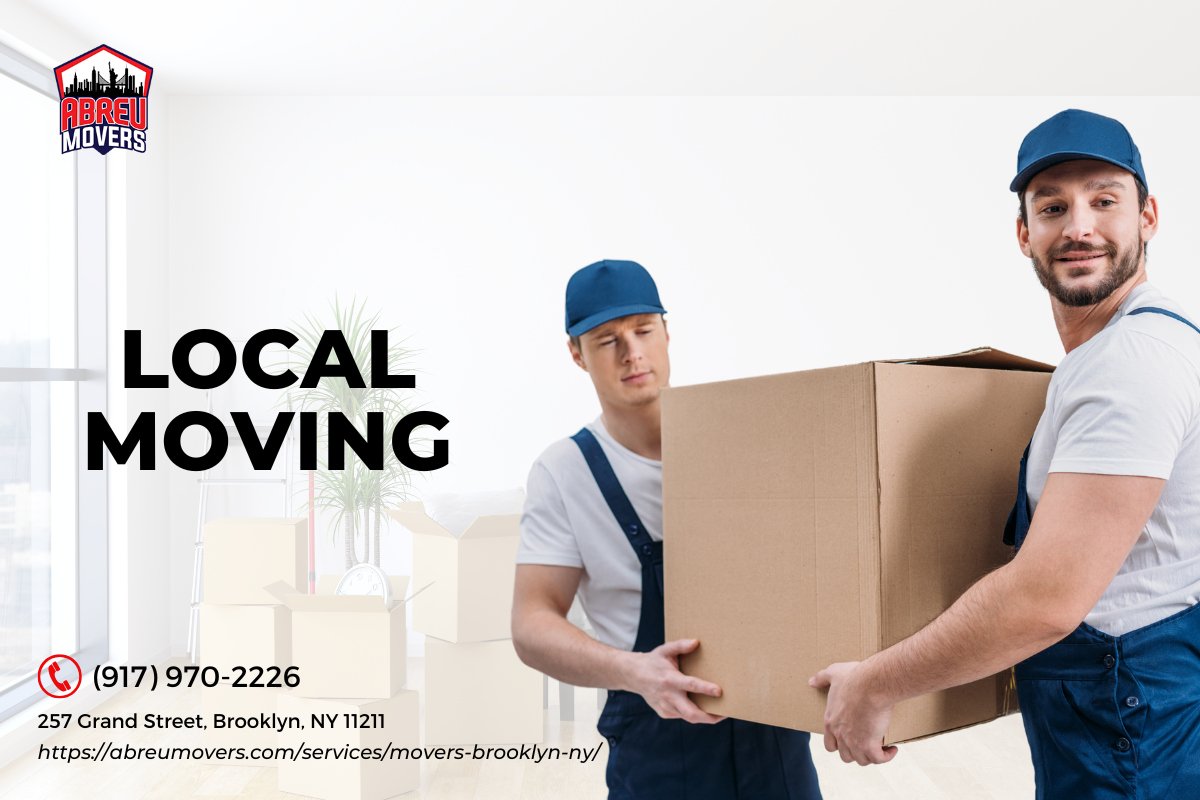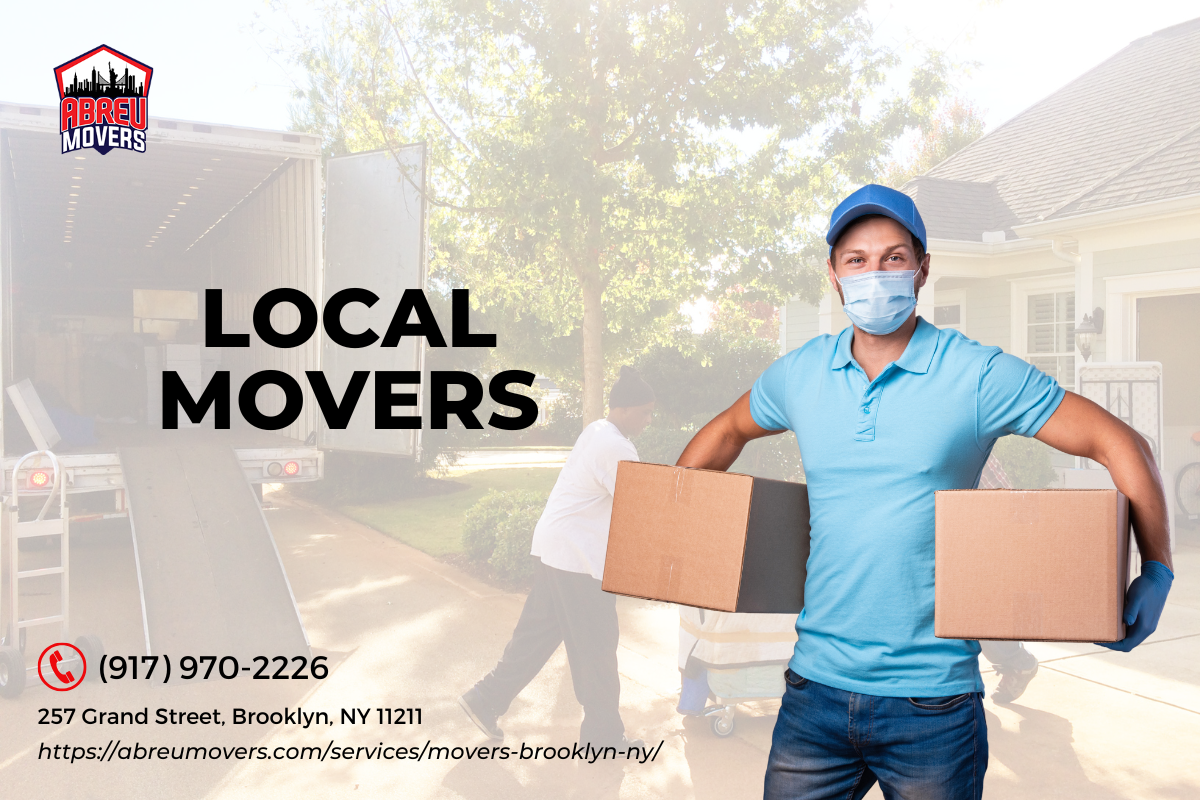
The Ultimate Checklist for a Successful Local Move

Introduction
Moving to a new place can be an exciting yet overwhelming experience. Whether you are relocating to a different neighborhood or a nearby city, proper planning and organization are essential for a successful local move. To ensure that everything goes smoothly, it is important to have a comprehensive checklist in place. In this article, we will provide you with the ultimate checklist for a successful local move, covering every aspect of the moving process.
The Ultimate Checklist for a Successful Local Move
Moving can be stressful, but with the right preparation and organization, you can make it a smooth and hassle-free experience. Here is the ultimate checklist to help you through your local move:
1. Research and Hire Local Moving Company Brooklyn
Before embarking on your local move, it is crucial to research and hire a reputable local moving company in Brooklyn. Look for companies with positive reviews, experience in handling local moves, and competitive pricing. By hiring professionals, you can save time and ensure that your belongings are safely transported to your new location.
2. Create a Moving Budget
Moving expenses can quickly add up, so it is important to create a moving budget beforehand. Take into account costs such as packing materials, transportation fees, utility transfers, and any additional services you may require. By setting a budget, you can keep track of your expenses and avoid overspending.
3. Sort and Declutter
Moving provides an excellent opportunity to declutter your home and get rid of items you no longer need or use. Before packing, go through each room and sort your belongings into categories: keep, donate/sell, or toss. This will not only lighten your load but also make packing and unpacking much easier.
4. Gather Packing Supplies
To ensure that your belongings are protected during transit, gather all the necessary packing supplies before you start packing. This includes sturdy moving boxes in various sizes, packing tape, bubble wrap, packing paper, and markers. Having everything on hand will save you time and prevent last-minute scrambling.
5. Pack Room by Room
To maintain organization and make unpacking easier, pack one room at a time. Start with the rooms you use less frequently and gradually move on to the more essential areas of your home. Label each box clearly with its contents and the room it belongs to. This will help movers know where to place each box in your new home.
6. Notify Important Parties of Your Move
Notify important parties of your upcoming move to ensure a smooth transition. This includes updating your address with the post office, banks, credit card companies, insurance providers, and any subscriptions or memberships you have. Also, inform friends, family, and colleagues of your new address so they can update their records.
7. Transfer Utilities
Contact utility providers well in advance to schedule the transfer or cancellation of services at your current address and set up utilities at your new location. This includes electricity, gas, water, internet, cable/satellite TV, and phone services. Make sure to coordinate the dates to avoid any disruption during your move.
8. Change Your Address
Don't forget to change your address with the necessary authorities and organizations. Visit the local post office or go online to fill out a change of address form with USPS. Additionally, update your address with government agencies such as the DMV and IRS, as well as any subscriptions or memberships you have.
9. Take Inventory
Before packing up your belongings, take inventory of everything you own. Create a detailed list of items along with their condition for insurance purposes. Additionally, consider taking photos or videos of valuable or fragile items as proof in case of any damage during transit.
10. Pack Valuables Separately
Keep valuable and sentimental items separate from the rest of your belongings. Pack them in a separate box or bag and transport them yourself to ensure their safety. This includes jewelry, important documents, electronic devices, and any irreplaceable items.
11. Arrange for Childcare and Pet Care
Moving can be chaotic, especially with children or pets around. To minimize stress for both you and your loved ones, arrange for childcare or pet care on moving day. This will allow you to focus on the move without worrying about the well-being of your children or pets.
12. Prepare an Essentials Box
Pack an essentials box containing all the items you will need immediately upon arrival at your new home. This includes toiletries, a change of clothes, bedding, towels, basic kitchen supplies, snacks, and any important documents or medications. Keep this box easily accessible during the move.
13. Take Measurements of New Home
Before moving into your new home, take measurements of each room to ensure that your furniture fits properly. This will save you time and effort during the moving process by avoiding any potential surprises or difficulties when trying to arrange furniture in your new space.
14. Clean Your Current Home
Once everything is packed up and ready to go, make sure to thoroughly clean your current home before leaving. This includes cleaning appliances, floors, windows, and any other areas that require attention. Not only is it considerate to leave a clean space for the next occupants but it will also help you get your security deposit back if applicable.
15. Conduct a Final Walkthrough
Before handing over the keys to your old home or taking possession of your new one, conduct a final walkthrough to ensure that everything is in order. Check for any damages or issues that need to be addressed with either the landlord or the moving company.
16. Hire Professional Movers Brooklyn
If you prefer not to handle the physical aspects of the move yourself, consider hiring professional movers in Brooklyn. They have the expertise and equipment to safely transport your belongings, saving you time and effort. Research local moving companies to find one that fits your needs and budget.
17. Pack an Overnight Bag
Prepare an overnight bag with essential items for the first night in your new home. This will save you from rummaging through boxes to find toiletries, pajamas, or other necessities. Include a change of clothes, toiletries, medications, chargers, and any other items you may need immediately upon arrival.
18. Take Care of Plants
If you have plants that you want to take with you, make sure to handle them with care. Prune them if necessary and transfer them to appropriate pots or containers for easy transportation. Keep in mind that some plants may require special attention or permits when crossing state lines.
19. Secure Valuable Documents
Gather important documents such as birth certificates, passports, social security cards, and insurance policies into a secure folder or box. Carry this box with you during the move to ensure that these documents are not misplaced or damaged.
20. Disconnect Appliances
Before moving appliances such as refrigerators, washers, dryers, or dishwashers, make sure they are disconnected properly. Empty and defrost the refrigerator at least 24 hours before the move to prevent any leaks or odors during transportation.
21. Measure Doorways and Hallways
To avoid any potential issues or damage when moving large furniture pieces into your new home, measure doorways and hallways beforehand. This will help you determine if certain items need disassembly or alternative routes for safe passage.
22. Pack an Emergency Kit
Prepare an emergency kit containing essential items such as a first aid kit, flashlight, batteries, basic tools, bottled water, non-perishable snacks, and a portable phone charger. Keep this kit easily accessible during the move in case of any unexpected situations.
23. Inform Neighbors
Let your neighbors know about your upcoming move, especially if it may cause temporary inconveniences such as blocking driveways or creating noise. Being considerate and communicating with your neighbors can help maintain a positive relationship within your new community.
24. Check Insurance Coverage
Contact your insurance provider to ensure that you have adequate coverage for your move. This includes homeowner's or renter's insurance, as well as additional coverage for valuable or fragile items. Understand the terms and conditions of your policy and make any necessary adjustments to avoid any potential issues.
25. Update Emergency Contacts
Review and update your emergency contacts list with the appropriate numbers for your new location. This includes local hospitals, police departments, fire stations, poison control centers, and utility companies. It is important to have this information readily available in case of any emergencies or unforeseen circumstances.
Frequently Asked Questions (FAQs)
Q: How do I find reliable local movers in Brooklyn? A: To find reliable local movers in Brooklyn, start by asking for recommendations from friends, family, or colleagues who have recently moved locally. Additionally, research online reviews and ratings to get an idea of each company's reputation and reliability.
Q: Should I pack my belongings myself or hire professionals? A: It depends on your preference and budget. Packing yourself can save money but requires more time and effort. Hiring professionals ensures efficient packing and reduces the risk of damage during transit.
Q: How far in advance should I start planning for my local move? A: It is recommended to start planning for your local move at least 8 weeks in advance. This allows ample time to research moving companies, gather packing supplies, declutter, and complete other necessary tasks.
Q: What should I do with perishable food items? A: It is best to consume or donate perishable food items before your move. Avoid packing them as they may spoil during transportation. Alternatively, you can use coolers or insulated bags for a short-distance move.
Q: Do I need to tip the movers? A: Tipping is not mandatory but is a common practice to show appreciation for a job well done. Consider tipping 10-20% of the total moving cost, depending on the level of service provided.
Q: How can I minimize the stress of moving with children? A: To minimize the stress of moving with children, involve them in the process by assigning age-appropriate tasks, maintaining their routines as much as possible, and providing reassurance and support throughout the transition.
Conclusion
Moving locally can be a complex task, but with careful planning and organization, it can be a smooth and successful experience. By following this ultimate checklist for a successful local move, you will be well-prepared to tackle every aspect of your relocation. Remember to hire reputable local movers in Brooklyn, create a budget, declutter, pack room by room, notify important parties, and take care of essential tasks such as changing your address and transferring utilities. With proper preparation and attention to detail, your local move will be a stress-free adventure.